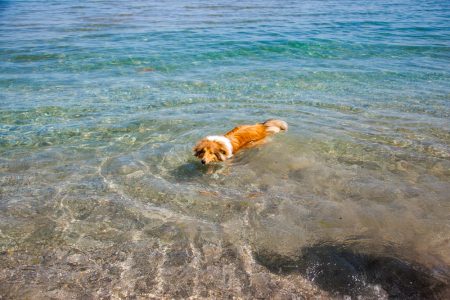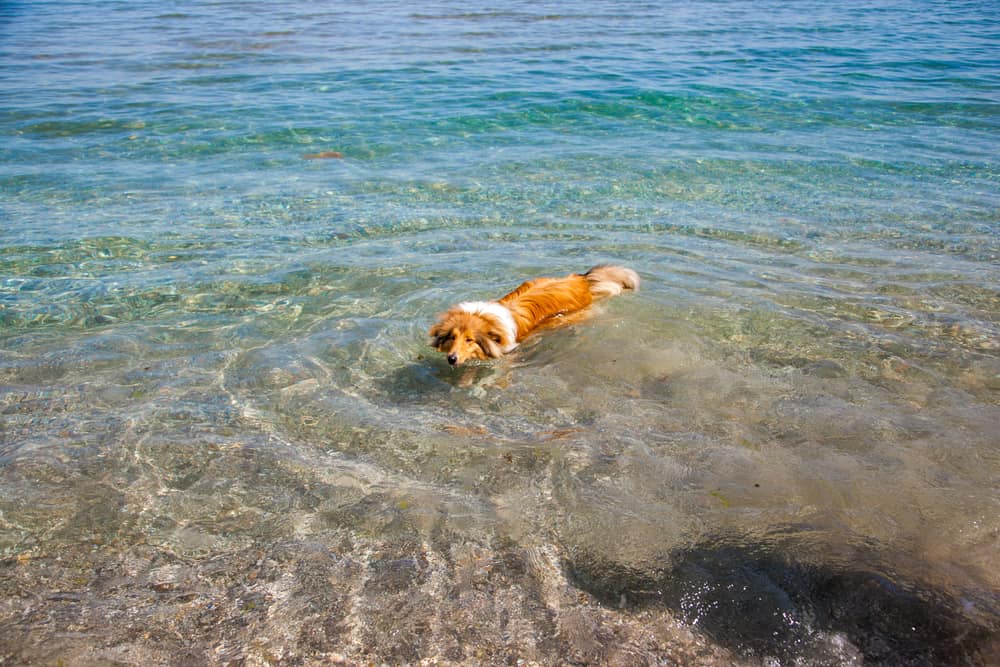- Exercise
It can’t be stressed enough how much exercise contributes to the longevity of your pet’s health. This single factor plays one of the most significant roles in a pet’s bodily functions, physical adeptness, and happiness. Yet when a pet reaches a certain age, all those joints and muscles they spent their entire life enjoying to the fullest will inevitably decline.
It’s crucial to understand the importance of preventative habits to combat joint decline in old age, which can even be adopted while your pet is still young. At the same time, it’s just as important to recognize when your pet begins to experience stiffness in their joints so that you can respond. Here are some exercise routines particularly beneficial to our elderly four-legged friends.

Walks: Catering your walks to the specific needs of your dog is a major component to joint health later in life. This is especially true if walks are their main means of exercise. For example, two 20 minute walks may serve your pup better than one 40 minute walk. Just like any other form of exercise, you have to start slow and then build up from there.
Play with other dogs: Sometimes the best option for a healthy dog is some organic, unrestricted runaround time with other dogs. This way, your dog can expend some energy in a natural, self-regulated manner and rest when they need it.
Stay low to the ground: Avoid throwing balls and Frisbees that will compel your arthritic dog to jump, which may aggravate stiff joints.
Avoid jerky movements: Hard pivoting during play with toys or other dogs can easily burden your dog’s joints. The same can happen on walks with long leashes. Opt for a lead over a leash and encourage alternative exercise methods to compensate.
What about cats? Cats need exercise too! Some regular play time can help ward of boredom, stress, and obesity. Experiment with some different options to see what your cat enjoys. For ideas, check this web site https://indoorpet.osu.edu/cats/basicneeds/toys
- Diet
Diet is as much a preventative measure for your pet’s health as it is a treatment. In the latter case, especially if your pet is overweight, make the life-changing decision to alter your pet’s diet for their greater good. Pets who have reduced mobility will find it even more difficult if they are lugging around some unwanted pounds.
It’s not always obvious that a pet is overweight, especially among certain breeds, so consult a vet for a sure diagnosis. If it comes down to it, embrace the challenge of shedding the pounds with your furry friend while learning how certain foods can hurt or benefit them.
- Home Environment
As we do with the elderly humans in our lives, when our pets reach a certain age and certain activities become difficult for them, we strive to make life easier however we can. Sometimes it takes a fresh pair of eyes to notice where are pets may be struggling in daily pursuits, especially if they’ve gone through life within the same four walls for years. Here are some life hacks to make your home environment more comfortable for your pet:
Bedding: Upgrade your pet with soft bedding that’s low to the ground. Consider a memory foam bed which is a little more expensive but extremely durable and easy on joints.
Flooring: Hard wood or otherwise slippery floors could be difficult for pets with joint or mobility issues. Consider laying rugs or traction strips, especially along the routes your pet takes through the house most often.
Steps or ramps: Steps or ramps can make it easier for your dog to get in and out of the car, especially if car trips are common. If you and your pet like sleeping together, steps next to the bed could be a major help. The same goes for installing ramps to go over steps, such as the ones leading up to your front door.
- Supplements and medications
We will be writing about supplements and other helpful products in another article this month. But if your pet is limping or very stiff, they would likely benefit from some medication as well. Make an appointment with one of our veterinarians for a thorough evaluation and recommendation.
